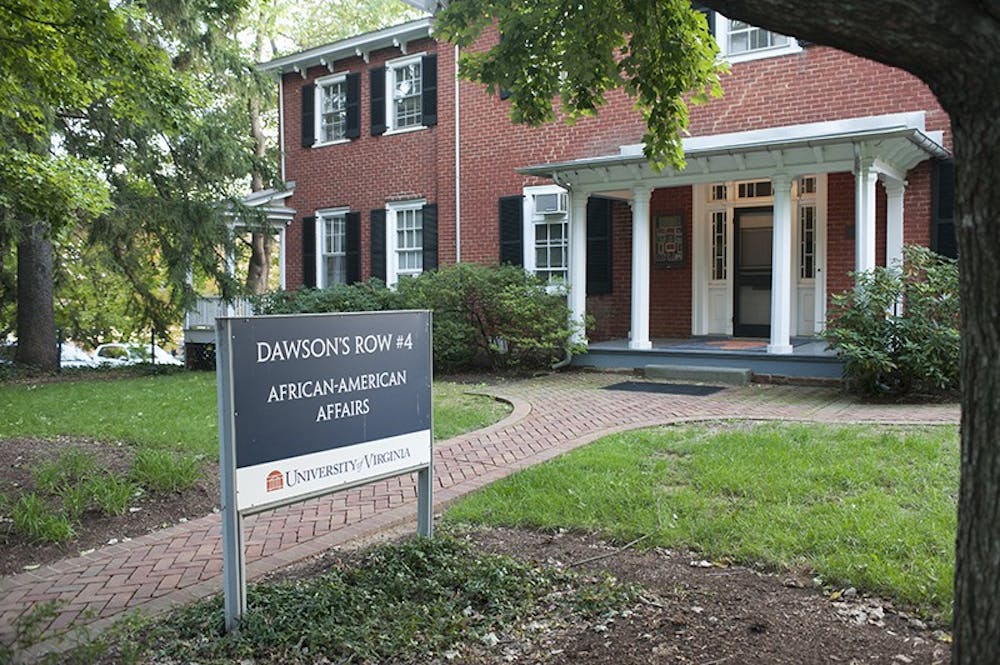On Wednesday, Black Student Alliance President Aryn Frazier, a third-year College student, released an open letter criticizing the University Office of African-American Affairs for changes aimed at “containing, limiting and overseeing Black student leaders.”
The letter, written on behalf of multiple University CIOs in response to OAAA’s Strategic Outcomes for 2015-16, voiced concerns about the office’s intentions regarding supervision of black student organizations.
Frazier said she objected to OAAA’s stated goal of overseeing “Black student leaders actions and ‘spheres of influence,’” as described in outlining the duties of Michael Mason, the new director of the Luther P. Jackson Black Cultural Center.
Dean of the OAAA Maurice Apprey said Frazier misunderstood the point and intentions of the stated goal. Apprey said the goal intends to give students more control and autonomy over dispersal of funds and spheres of influence.
“We are actually shoring up their own capacity to have conversations and discussions between themselves rather than take over. That’s what that’s about,” Apprey said. “While I’m pleading for unity, collaboration, they’re trying to split us.”
In the letter Frazier also focused on the phrase “wreak havoc.” In the stated goal of the document, the OAAA said the negotiation among different spheres of influence in the black community “threatens to wreak havoc on climate at the University.”
“I don’t think “wreak havoc” is a phrase that is easily misconstrued,” Frazier said. “I think that we can certainly talk about ways in which it was interpreted differently than it was meant to be received but I think that is a lot of saving face.”
The OAAA responded directly to the open-ended letter Thursday. Apprey said the passage referenced by the letter was pulled out of context and that an essential part was omitted.
In his written response to the letter, Apprey said the strategic outcomes document “communicates clearly our desire to provide support to ALL CIOs, who primarily service our constituency, as they negotiate spheres of influence between them, rather than reducing the influence that exist amongst them.”
No matter how the original wording was intended, that the language did not come across as collaborative was concerning, third-year Batten student DeAnza Cook, president of BOLD Research Society and a member of BSA, said.
“Whether it was intended or not, for them to use language that would lead someone like me to believe that there isn’t that element of collaboration — that’s unsettling,” Cook said. “As a black leader I don’t feel empowered by that language.”
All the same, her experiences with OAAA have mostly been constructive, Cook said.
“My relationship with OAAA has been more positive than negative,” she said.
Apprey said the original statement was a response to existing tensions between CIOs in the OAAA constituency.
“The new president of BSA Aryn Frazier began to overreach in terms of the domains — what I call the spheres of influence,” Apprey said. “She wanted BSA to be the overarching body that speaks to all black issues, and other students have expressed discomfort with that.”
Frazier refuted this claim.
“I think OAAA in their response implied that in some ways BSA is ‘colonizing’ other organizations and somehow silences their voices,” Frazier said. “Ironically, he was the largest silencer of all.”
The letter written by Frazier demanded a meeting within the next 10 days between the Office of African-American Affairs and the student body to “express Black student opinions and feedback on OAAA.”
Everyone deserves the chance to talk about his or her feelings and experiences with the OAAA, whether good or bad, Frazier said.
Regardless of how appropriate the claims in Frazier’s letter addressed to OAAA, Mason, said her statement that the OAAA chose to “reaffirm the ‘Negro Question’ that plagued the 20th Century” was mistaken.
“But whatever the grievance is, to invoke slavery as the metaphor is inappropriate, grossly inappropriate,” he said.
A town hall meeting between the OAAA and the student body is planned for Oct. 19. The BSA will also be hosting a student meeting to discuss the OAAA Oct. 12.
The original document reads:
At the level of leadership in student organizations, the new Director of the Luther P. Jackson Black Cultural Center will oversee the negotiation of spheres of influence among student leaders that threatens to wreak havoc on climate at the University. This is by far the most critical issue to resolve in the coming year.
A successful outcome will be demonstrated by the level of crisis containment, distribution of power between groups and the capacity of CIO leaders to learn skill sets without colonizing the domains of other groups.
[Pillar 3, Goal 2, strategy 1.].
Read this article translated into Mandarin here.







